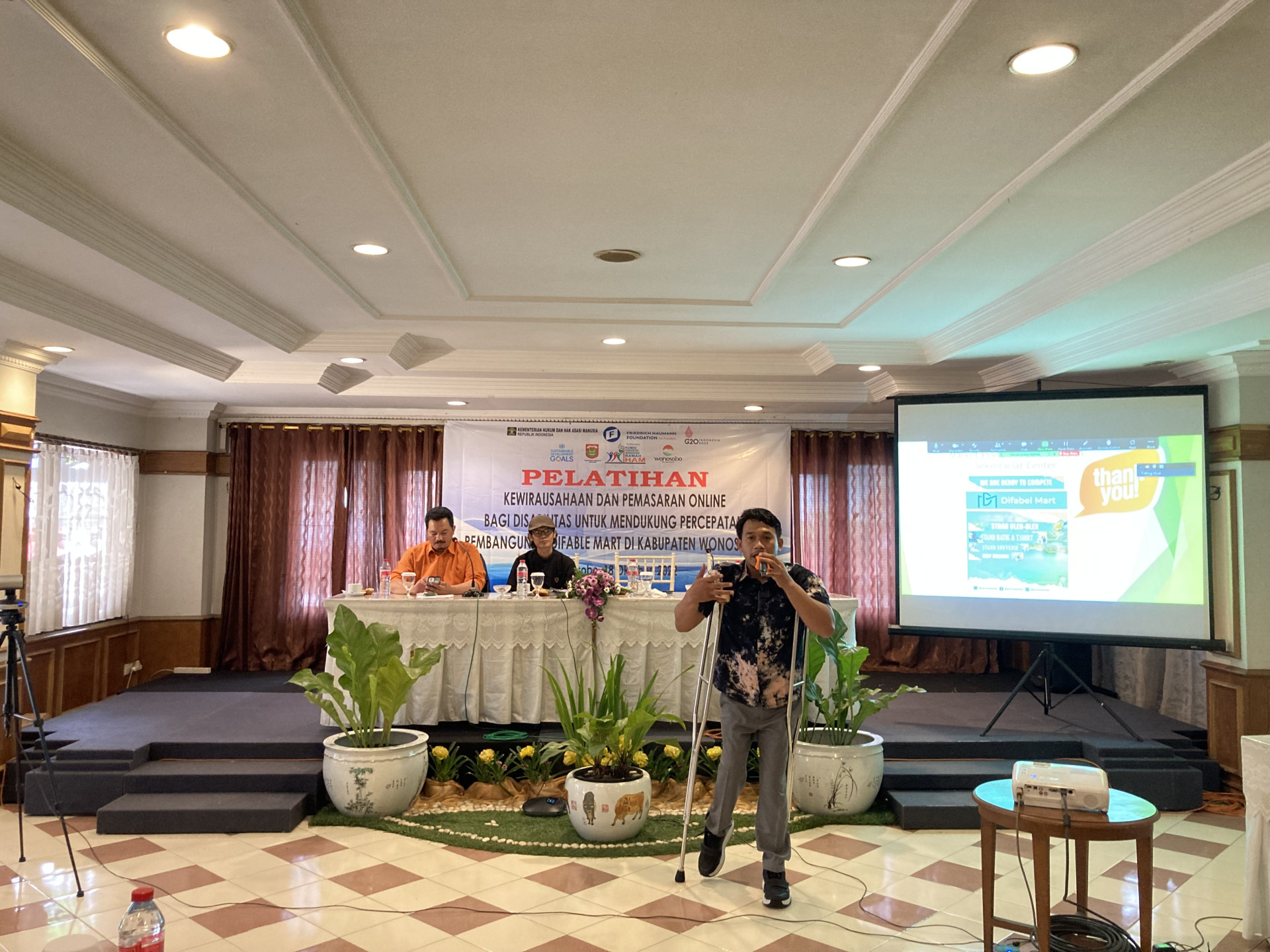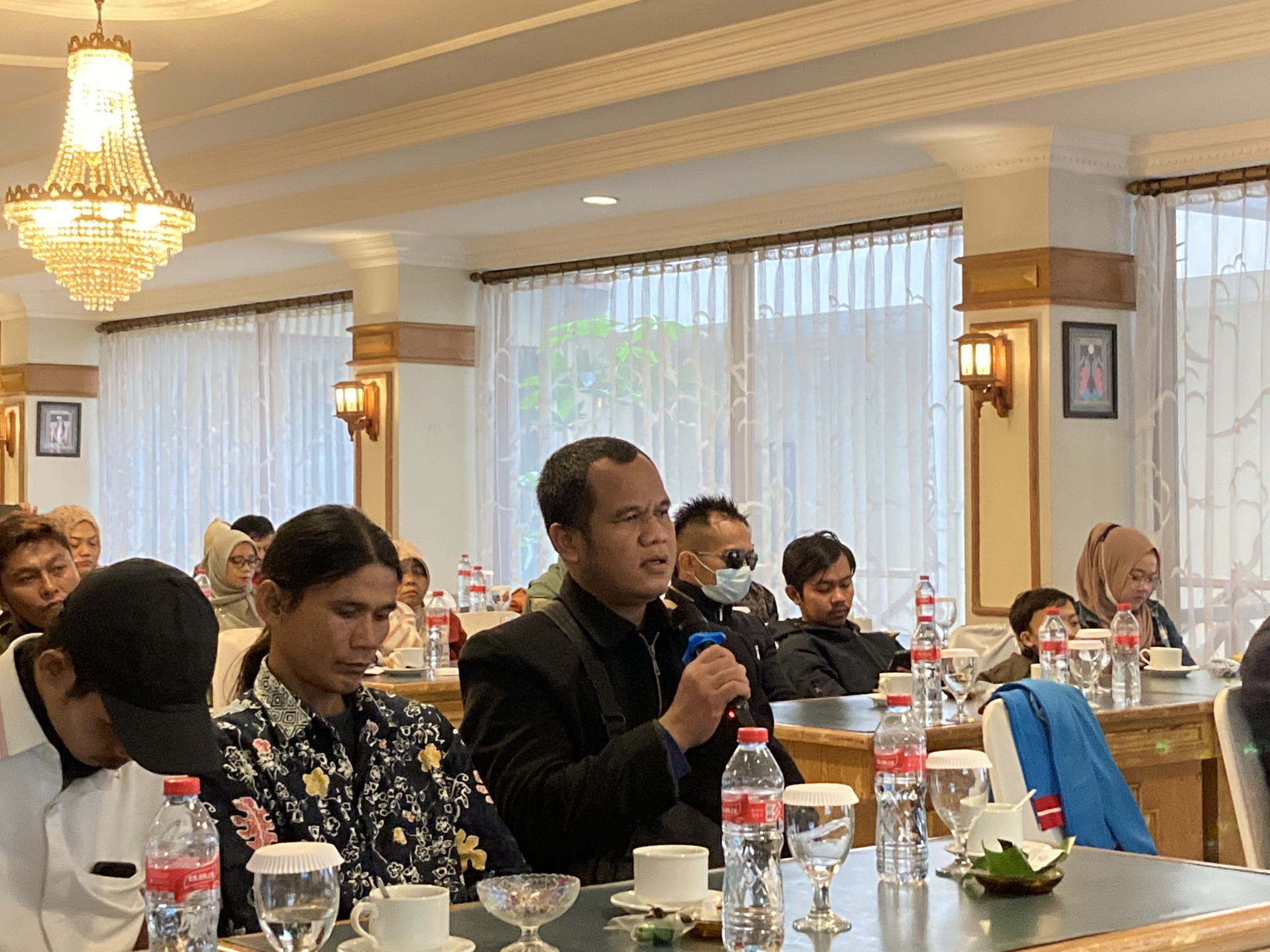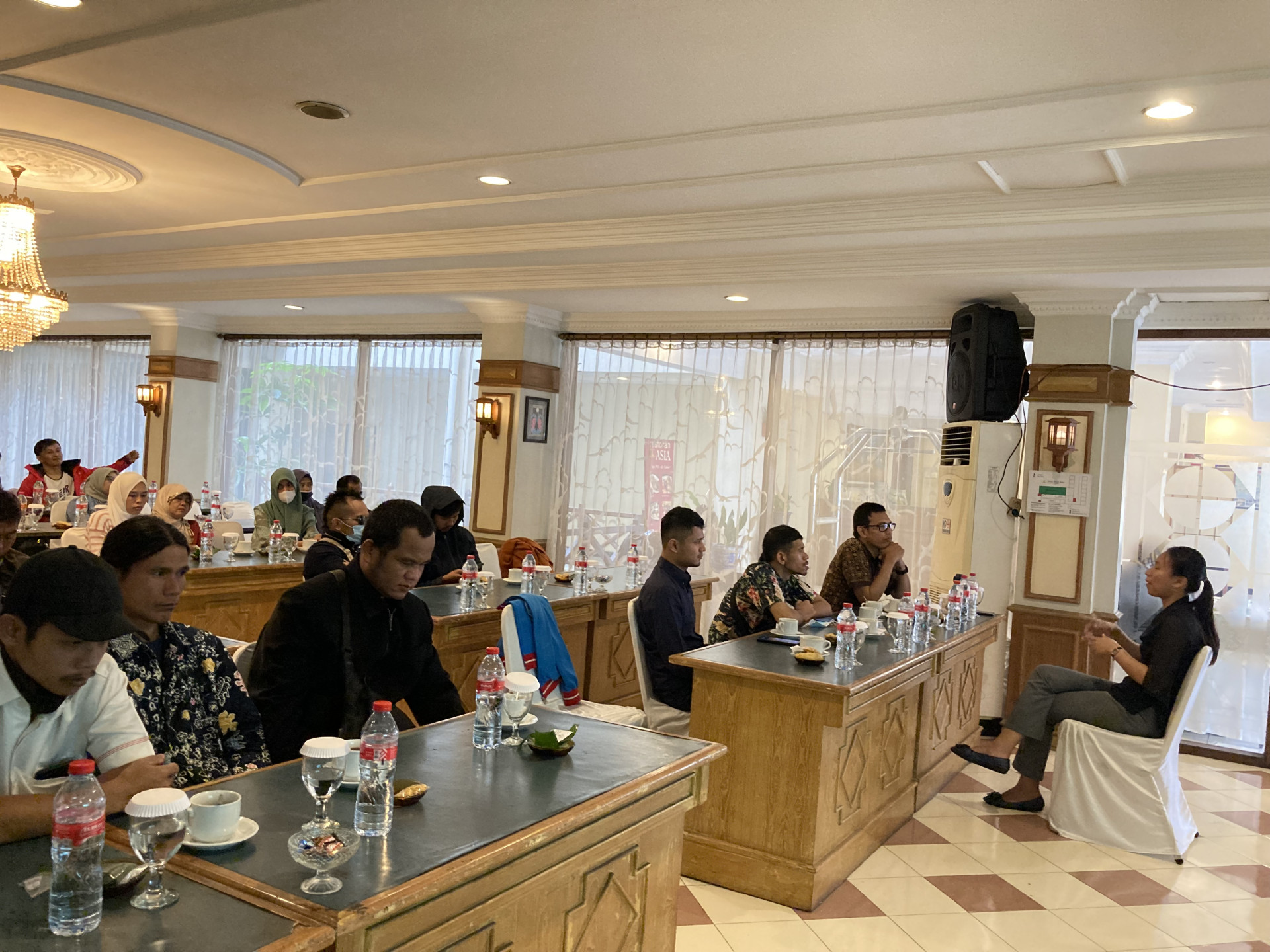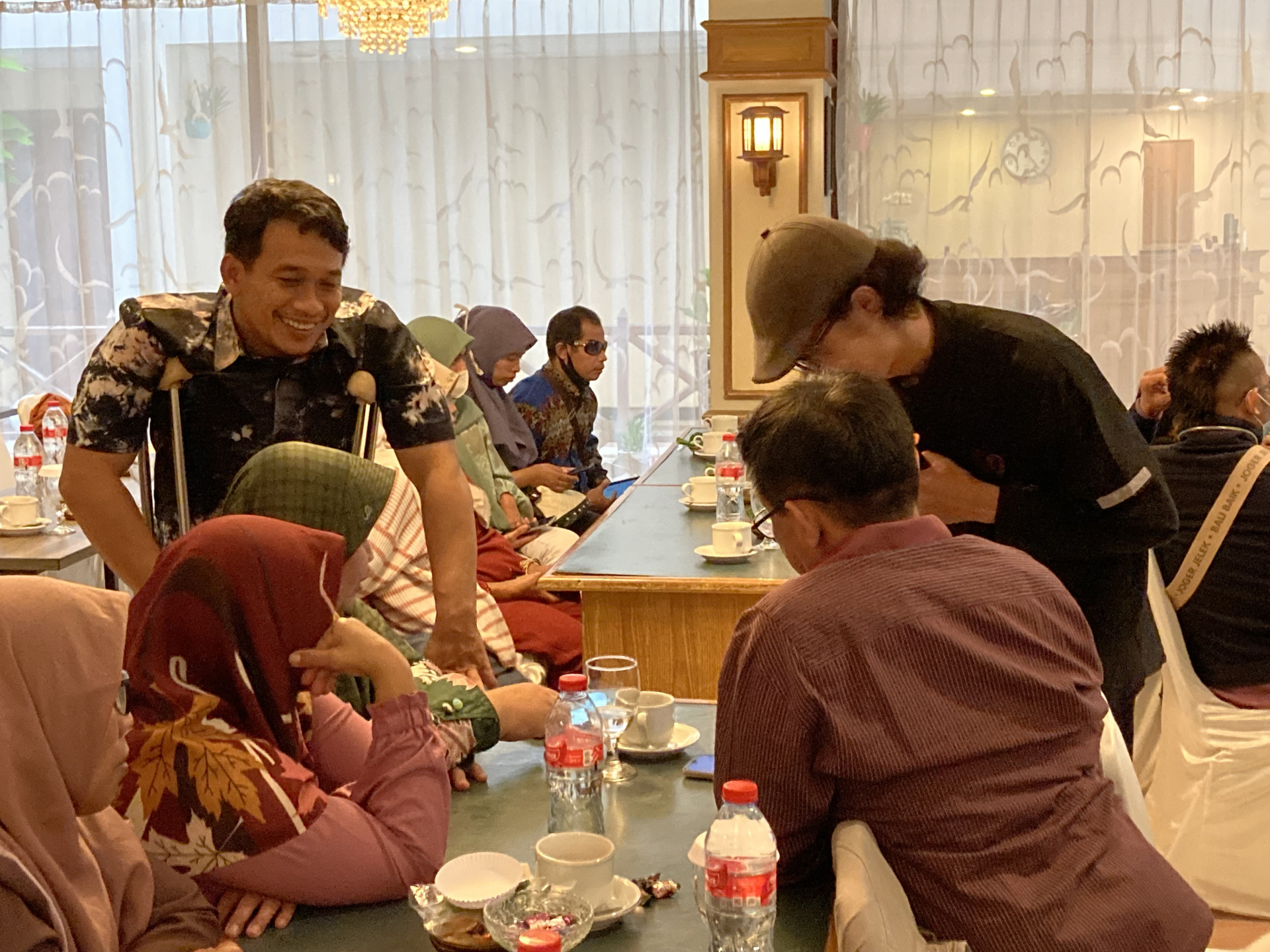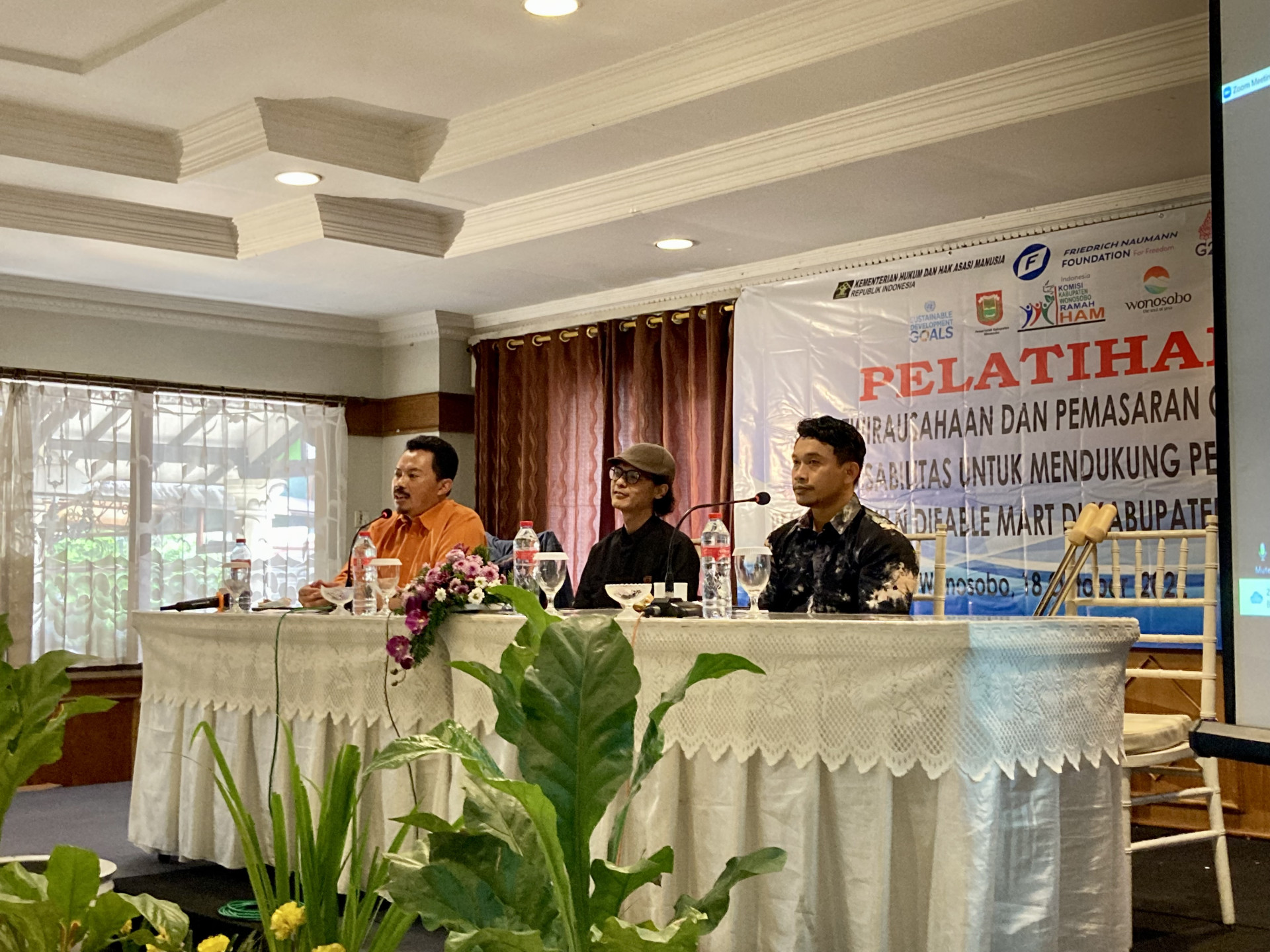Entrepreneurship and Online marketing for People with Disabilities
Indonesia
Equal Rights of Women in the Labour Market
Residents of Wonosobo district, Central Java, Indonesia, face poverty, limited education opportunities, often stopping at junior high school, and high rates of child marriage. Access to the labour market is scarce, especially for people with disabilities, amplifying their challenges.
Syaifur Rochman, Chairman of the Wonosobo Association of People with Disabilities, is convinced that the district’s poverty issue persists due to inadequate efforts to empower people with disabilities. Limited access to resources and opportunities is exacerbated by social stigma, rendering their market participation next to impossible. Families often conceal their relatives’ disabilities out of shame. Low skills and education levels further restrict their access to formal employment.
And yet, things seem to change. The Wonosobo district’s local government, inspired by the annual Gwangju Conference on Human Rights Cities in South Korea in 2013, became the first in Indonesia to show keen interest in becoming a human rights-friendly district. Since then, it has made significant strides in pursuing this goal.
In early 2022, for example, an initiative emerged: Diffable Mart was created to unite home industry workers for a greater sales potential. The goal was to empower people with disabilities economically, fostering their independence, and self-realization. The training program helped participants gain entrepreneurial insights and boosted their motivation to engage in productive economic activities. They were equipped with skills and knowledge in areas like business strategies, online marketing, network development, and identification of local economic opportunities. Additionally, they were encouraged to take online photography courses to learn about appealing product presentation.
Business and human rights
